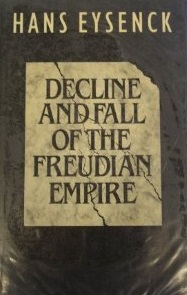Psychoanalysis is a set of theories and therapeutic techniques that deal in part with the unconscious mind, and which together form a method of treatment for mental disorders. The discipline was established in the early 1890s by Sigmund Freud, whose work stemmed partly from the clinical work of Josef Breuer and others. Freud developed and refined the theory and practice of psychoanalysis until his death in 1939. In an encyclopedia article, he identified the cornerstones of psychoanalysis as "the assumption that there are unconscious mental processes, the recognition of the theory of repression and resistance, the appreciation of the importance of sexuality and of the Oedipus complex." Freud's colleagues Alfred Adler and Carl Gustav Jung developed offshoots of psychoanalysis which they called individual psychology (Adler) and Analytical Psychology (Jung), although Freud himself wrote a number of criticisms of them and emphatically denied that they were forms of psychoanalysis. Psychoanalysis was later developed in different directions by neo-Freudian thinkers, such as Erich Fromm, Karen Horney, and Harry Stack Sullivan.

Sigmund Freud was an Austrian neurologist and the founder of psychoanalysis, a clinical method for evaluating and treating pathologies seen as originating from conflicts in the psyche, through dialogue between patient and psychoanalyst, and the distinctive theory of mind and human agency derived from it.

The Interpretation of Dreams is an 1899 book by Sigmund Freud, the founder of psychoanalysis, in which the author introduces his theory of the unconscious with respect to dream interpretation, and discusses what would later become the theory of the Oedipus complex. Freud revised the book at least eight times and, in the third edition, added an extensive section which treated dream symbolism very literally, following the influence of Wilhelm Stekel. Freud said of this work, "Insight such as this falls to one's lot but once in a lifetime."
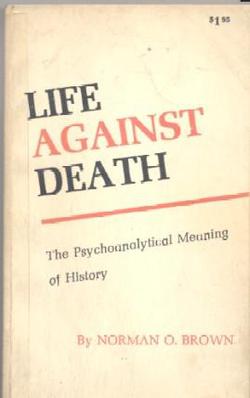
Life Against Death: The Psychoanalytical Meaning of History is a book by the American classicist Norman O. Brown, in which the author offers a radical analysis and critique of the work of Sigmund Freud, tries to provide a theoretical rationale for a nonrepressive civilization, explores parallels between psychoanalysis and Martin Luther's theology, and draws on revolutionary themes in western religious thought, especially the body mysticism of Jakob Böhme and William Blake. It was the result of an interest in psychoanalysis that began when the philosopher Herbert Marcuse suggested to Brown that he should read Freud.

Eros and Civilization: A Philosophical Inquiry into Freud is a book by the German philosopher and social critic Herbert Marcuse, in which the author proposes a non-repressive society, attempts a synthesis of the theories of Karl Marx and Sigmund Freud, and explores the potential of collective memory to be a source of disobedience and revolt and point the way to an alternative future. Its title alludes to Freud's Civilization and Its Discontents (1930). The 1966 edition has an added "political preface".
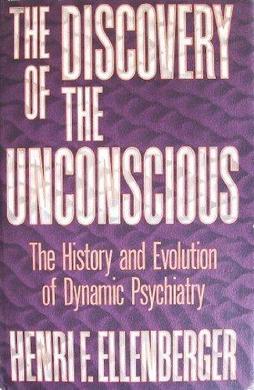
The Discovery of the Unconscious: The History and Evolution of Dynamic Psychiatry is a 1970 book about the history of dynamic psychiatry by the Swiss medical historian Henri F. Ellenberger, in which the author discusses such figures as Franz Anton Mesmer, Sigmund Freud, Pierre Janet, Alfred Adler, and Carl Jung. The book was first published in the United States by Basic Books. The work has become a classic, and has been credited with correcting older estimates of Freud's level of originality and encouraging scholars to question the scientific validity of psychoanalysis.

Knowledge and Human Interests is a 1968 book by the German philosopher Jürgen Habermas, in which the author discusses the development of the modern natural and human sciences. He criticizes Sigmund Freud, arguing that psychoanalysis is a branch of the humanities rather than a science, and provides a critique of the philosopher Friedrich Nietzsche.

Why Freud Was Wrong: Sin, Science and Psychoanalysis is a book by Richard Webster, in which the author provides a critique of Sigmund Freud and psychoanalysis, and attempts to develop his own theory of human nature. Webster argues that Freud became a kind of Messiah and that psychoanalysis is a pseudoscience and a disguised continuation of the Judaeo-Christian tradition. Webster endorses Gilbert Ryle's arguments against mentalist philosophies in The Concept of Mind (1949), and criticizes many other authors for their treatment of Freud and psychoanalysis.

The Assault on Truth: Freud's Suppression of the Seduction Theory is a book by the former psychoanalyst Jeffrey Moussaieff Masson, in which the author argues that Sigmund Freud, the founder of psychoanalysis, deliberately suppressed his early hypothesis, known as the seduction theory, that hysteria is caused by sexual abuse during infancy, because he refused to believe that children are the victims of sexual violence and abuse within their own families. Masson reached this conclusion while he had access to several of Freud's unpublished letters as projects director of the Sigmund Freud Archives. The Assault on Truth was first published in 1984 by Farrar, Straus and Giroux; several revised editions have since been published.

Freud, Biologist of the Mind: Beyond the Psychoanalytic Legend is a 1979 biography of Sigmund Freud, the founder of psychoanalysis, by the psychologist Frank Sulloway.
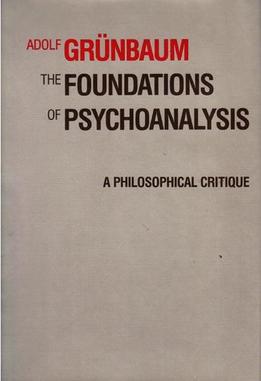
The Foundations of Psychoanalysis: A Philosophical Critique is a 1984 book by the philosopher Adolf Grünbaum, in which the author offers a philosophical critique of the work of Sigmund Freud, the founder of psychoanalysis. The book was first published in the United States by the University of California Press. Grünbaum evaluates the status of psychoanalysis as a natural science, criticizes the method of free association and Freud's theory of dreams, and discusses the psychoanalytic theory of paranoia. He argues that Freud, in his efforts to defend psychoanalysis as a method of clinical investigation, employed an argument that Grünbaum refers to as the "Tally Argument"; according to Grünbaum, it rests on the premises that only psychoanalysis can provide patients with correct insight into the unconscious pathogens of their psychoneuroses and that such insight is necessary for successful treatment of neurotic patients. Grünbaum argues that the argument suffers from major problems. Grünbaum also criticizes the views of psychoanalysis put forward by other philosophers, including the hermeneutic interpretations propounded by Jürgen Habermas and Paul Ricœur, as well as Karl Popper's position that psychoanalytic propositions cannot be disconfirmed and that psychoanalysis is therefore a pseudoscience.

Freud and Philosophy: An Essay on Interpretation is a 1965 book about Sigmund Freud, the founder of psychoanalysis, written by the French philosopher Paul Ricœur. In Freud and Philosophy, Ricœur interprets Freudian work in terms of hermeneutics, a theory that governs the interpretation of a particular text, and phenomenology, a school of philosophy founded by Edmund Husserl. Ricœur addresses questions such as the nature of interpretation in psychoanalysis, the understanding of human nature and the relationship between Freud's interpretation of culture amongst other interpretations. The book was first published in France by Éditions du Seuil, and in the United States by Yale University Press.

The Memory Wars: Freud's Legacy in Dispute is a 1995 book that reprints articles by the critic Frederick Crews critical of Sigmund Freud, the founder of psychoanalysis, and recovered-memory therapy. It also reprints letters from Harold P. Blum, Marcia Cavell, Morris Eagle, Matthew Erdelyi, Allen Esterson, Robert R. Holt, James Hopkins, Lester Luborsky, David D. Olds, Mortimer Ostow, Bernard L. Pacella, Herbert S. Peyser, Charlotte Krause Prozan, Theresa Reid, James L. Rice, Jean Schimek, and Marian Tolpin.

Homosexuality: A Philosophical Inquiry is a 1988 book by the philosopher Michael Ruse, in which the author discusses different theories of homosexuality, evaluates the moral status of homosexual behavior, and argues in favor of gay rights.

Freud: The Mind of the Moralist is a book about Sigmund Freud, the founder of psychoanalysis, by the sociologist Philip Rieff, in which the author places Freud and psychoanalysis in historical context. Rieff described his goal as being to "show the mind of Freud ... as it derives lessons on the right conduct of life from the misery of living it."
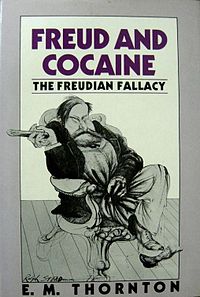
The Freudian Fallacy, first published in the United Kingdom as Freud and Cocaine, is a 1983 book about Sigmund Freud, the founder of psychoanalysis, by the medical historian Elizabeth M. Thornton, in which the author argues that Freud became a cocaine addict and that his theories resulted from his use of cocaine. The book received several negative reviews, and some criticism from historians, but has been praised by authors critical of Freud and psychoanalysis. The work has been compared to Jeffrey Masson's The Assault on Truth (1984).
Homosexuality: Disease or Way of Life? is a 1956 book by the psychoanalyst Edmund Bergler, in which the author argues that homosexuality is a curable illness. Bergler denies that homosexuality is caused by hormonal or other biological factors, the Oedipus complex, or having a dominant mother and a weak or absent father, instead attributing both male and female homosexuality to pre-Oedipal factors involving an unsolved masochistic conflict with the mother during the earliest period of infancy. According to Bergler, homosexuality in men reflects unconscious fear and hatred of women. Bergler argues that there are several different types of homosexuality, each with a distinct clinical profile. Bergler rejects the existence of bisexuality, maintaining that all supposed bisexuals are homosexuals, and criticizes the work of sex researcher Alfred Kinsey. He characterizes homosexual men as sexually promiscuous, and argues that this promiscuity is a result of their unsatisfying sex lives and masochistic craving for danger. Bergler argues against immediately repealing laws against homosexuality, though he suggests that such laws could perhaps be repealed in the future if other measures against homosexuality proved effective. Bergler proposes the publicizing of his ideas as a measure against homosexuality.

Les Illusions de la Psychanalyse is a 1980 book about psychoanalysis by the Belgian psychoanalyst Jacques Van Rillaer, in which the author criticizes psychoanalytic theory and practice. Les Illusions de la Psychanalyse has been called a classic work.

Sexuality and Its Discontents: Meanings, Myths, and Modern Sexualities is a 1985 book about the politics and philosophy of sex by the sociologist Jeffrey Weeks. The book received positive reviews, crediting Weeks with explaining the theories of sexologists and usefully discussing controversial sexual issues. However, Weeks was criticised for his treatment of feminism and sado-masochism.

Philosophical Essays on Freud is a 1982 anthology of articles about Sigmund Freud and psychoanalysis edited by the philosophers Richard Wollheim and James Hopkins. Published by Cambridge University Press, it includes an introduction from Hopkins and an essay from Wollheim, as well as selections from philosophers such as Ludwig Wittgenstein, Clark Glymour, Adam Morton, Stuart Hampshire, Brian O'Shaughnessy, Jean-Paul Sartre, Thomas Nagel, and Donald Davidson. The essays deal with philosophical questions raised by the work of Freud, including topics such as materialism, intentionality, and theories of the self's structure. They represent a range of different viewpoints, most of them from within the tradition of analytic philosophy. The book received a mixture of positive, mixed, and negative reviews. Commentators found the contributions included in the book to be of uneven value.
